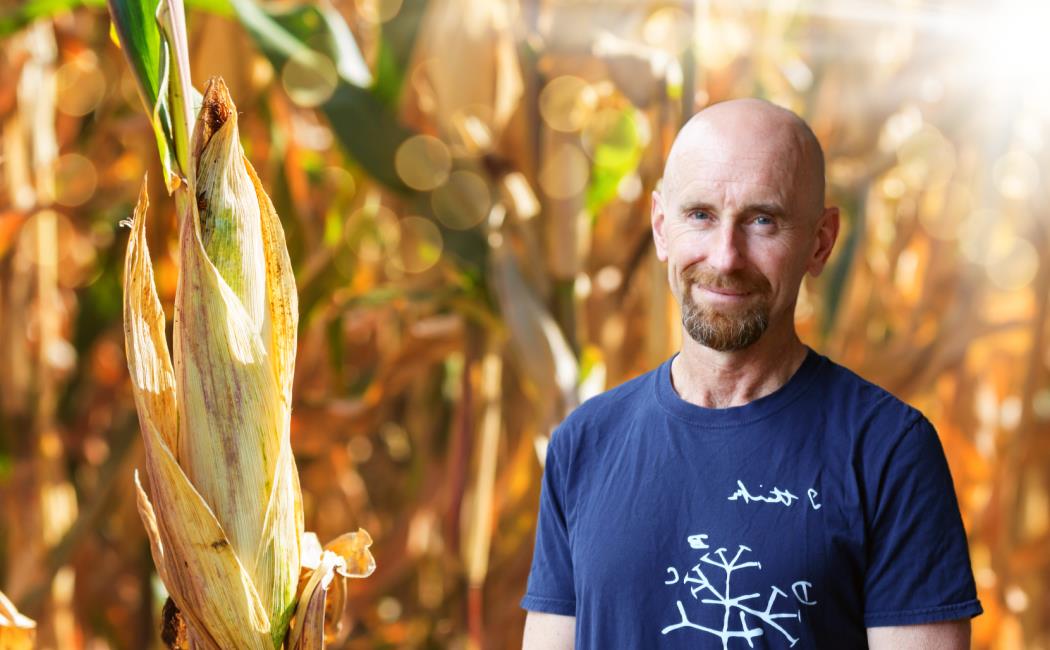


Speaker: Mark Cooper
Professor, Prediction-Based Crop Improvement
Deputy Director, ARC Centre of Excellence for Plant Success in Nature & Agriculture
Queensland Alliance for Agriculture and Food Innovation
The University of Queensland
On Zoom
Abstract
Plant breeders are expected to have a working knowledge of the Breeder’s Equation. It is also expected that the Breeder’s Equation will be used as a framework to help optimise the design of their breeding program. This was relatively straightforward when breeding was based predominantly on selection for trait phenotypes. Today, breeders either use, or aspire to use, genomic information in many different ways to improve the effectiveness of their breeding programs. I will share my experiences in how this transition to use of genomic information has required me to think differently about the Breeder’s Equation. The presentation will introduce research themes focused on how to approach prediction-based crop improvement that are motivated by the “super-wicked” problem of improving food security for current and future environments. The prediction-based approaches to be discussed are grounded in an iterative empirical-modelling cycle that operates across two complementary domains: empirical-experimental and mathematical-modelling. The research themes are underpinned by: (1) Two decades of experience breeding maize hybrids for yield and yield stability in the US corn-belt and research partnerships with many colleagues, (2) Advances in hierarchical Bayesian modelling methods that leverage prior genetic and physiological knowledge for genomic prediction, (3) Advances in crop models that can enhance our ability to test “multiple workable solutions” to improve crop yield and yield stability through breeding and improved agronomy. Further, two strong motivations for investigating such prediction-based approaches are: (1) the need to increase the scale of breeding programs beyond what we can currently achieve by empirical approaches alone, and (2) using the environments we can sample today it is difficult to empirically test, at the required scale, for many dimensions of the projected future Target Population of Environments, given projected climate change scenarios for the rest of this Century.
About the Speaker
Professor Mark Cooper is Chair of Prediction Based Crop Improvement at The University of Queensland, and a global leader in quantitative genetics and plant breeding. His work involves integrating genomic prediction and crop growth models into an 'end
to end' framework for crop improvement.
Professor Cooper has pioneered the development of novel genetic modelling methodologies, based on gene networks, to study important properties of quantitative traits in biology, and demonstrated how this new genetic modelling framework can be successfully used in plant breeding to improve prediction of important traits under the influences of selection. Professor Cooper's work at DuPont Pioneer on drought adaptation in one of the largest maize breeding programs in the world led to the AQUAmax hybrids that presently cover millions of hectares worldwide.
A quantitative geneticist by training, Professor Cooper spent 20 years working with industry in the United States and as CEO of his own consultancy firm Zenrun42, before returning to UQ to build upon the critical mass of predictive agricultural expertise in QAAFI and the wider university.
Watch the recorded lecture on our YouTube Channel
Professor, Prediction-Based Crop Improvement; Deputy Director, ARC Centre of Excellence for Plant Success in Nature & Agriculture; Queensland Alliance for Agriculture and Food Innovation, The University of Queensland